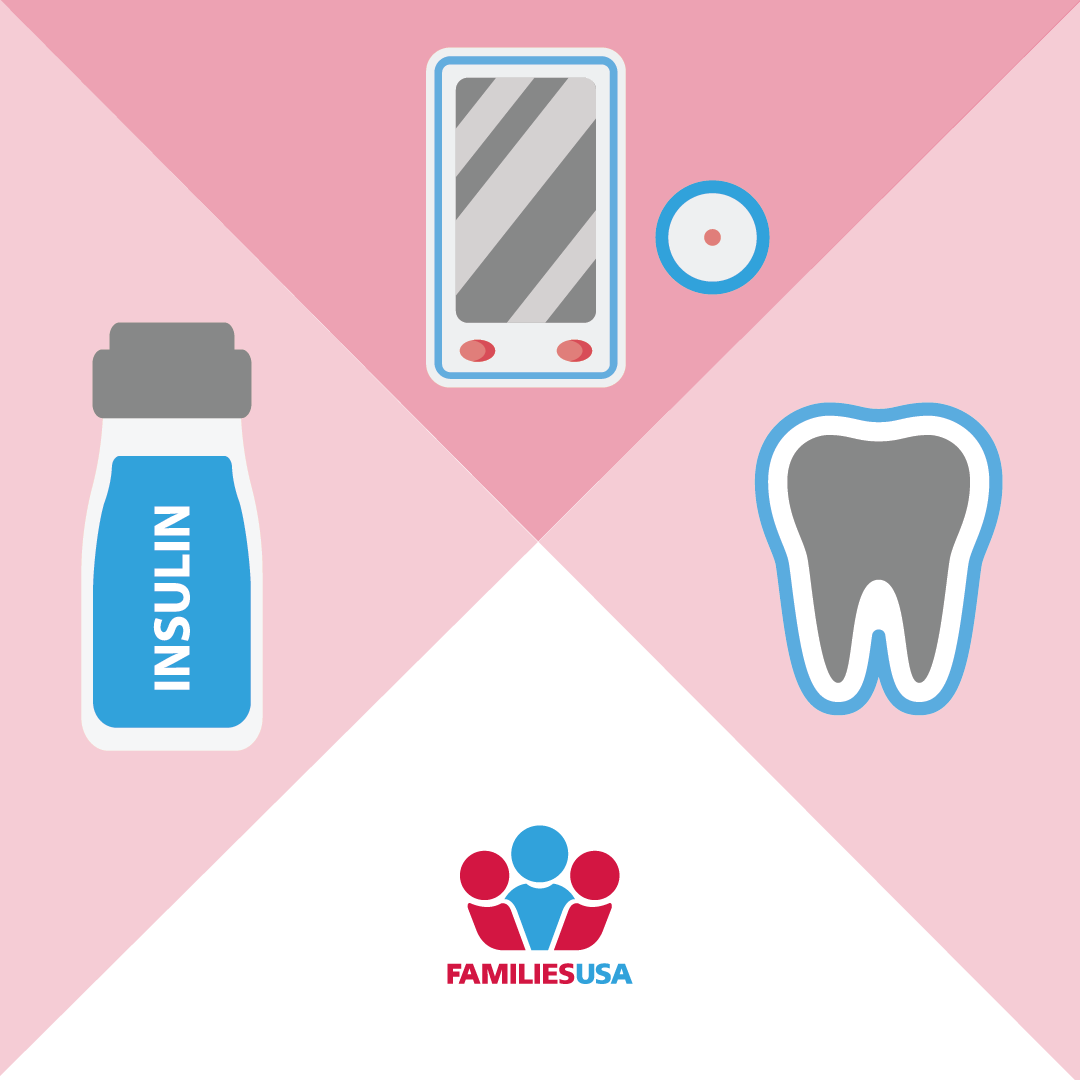Representative Doggett’s Medicare Negotiation Proposal to Meaningfully Lower Drug Prices
05.31.2019
High and rising drug prices jeopardize consumers’ health and well-being.1 To address the harms of high drug prices, families across America want and deserve meaningful reforms that target and reduce the underlying “list” prices of drugs. Polling shows that nine out of 10 voters support allowing the government to negotiate lower drug prices in Medicare.2
Despite this broad public support, the United States remains the only high-income country that does not leverage the power of its government to negotiate prescription drug prices.3 In fact, the U.S. spends twice as much on prescriptions as economically comparable countries, including Canada, France, and the United Kingdom, despite purchasing fewer medicines per person.4
Members of Congress on both sides of the aisle have made it a priority to pursue legislation that addresses the costs of prescription drugs. Many of Congress’ proposals would take positive steps towards lowering costs for consumers, but families need bold action to address the root causes of high drug prices and to allow Medicare to negotiate drug prices.
The Significance of Medicare Drug Price Negotiation
When Congress first enacted the Medicare Part D drug benefit in 2003, pharmaceutical manufacturers successfully lobbied to prevent Medicare from negotiating lower prices for consumers.5 Medicare now pays for nearly one third of all retail prescription drugs in the United States, and sets a benchmark for pricing in most health care sectors.6 Medicare’s restriction on negotiating prevents the government from reining in abusive pharmaceutical manufacturer practices that allow the companies to charge consumers unrestricted, excessive prices, and raise those prices on consumers whenever they want.7
For Medicare negotiation to effectively rein in prices, however, the government’s ability to negotiate must be coupled with an enforcement mechanism to ensure that pharmaceutical companies comply with negotiated prices. (For more on this, see Reining in High Prescription Drug Prices: What Families Need from Congress, by the Coalition for Fair Drug Prices, available online at: https://familiesusa.org/sites/default/files/product_documents/SILC_Reining-In-Rx-Drug-Prices_Whitepaper.pdf.)
Representative Lloyd Doggett’s Proposal for Meaningful Medicare Negotiation
A proposal sponsored by Representative Lloyd Doggett (D-TX), the Medicare Negotiation and Competitive Licensing Act, would meaningfully harness Medicare’s purchasing power to lower drug prices. This proposal, which has gained the support of 126 cosponsors in the House of Representatives, would help make drugs more affordable for nearly 60 million Americans. 8
The Medicare Negotiation and Competitive Licensing Act would empower the federal government to negotiate drug prices in Medicare Part D. Importantly, the bill includes an effective enforcement mechanism to ensure that drug companies comply with the prices established through negotiation.
Under the legislation, if a drug company will not agree to a fair and affordable price determined through negotiation, the federal government can issue a “competitive license” for the drug. Under a competitive license, a generic manufacturer will be permitted to make the drug at a lower cost for Medicare beneficiaries. This proposal provides a strong incentive for drug companies to negotiate in good faith while protecting beneficiaries’ access to needed medicines. Additionally, to ensure the brand drug company is compensated for their true research and development investment, the bill would require any competitor to pay a fair portion of their sales, or a royalty fee, under a competitive license.
By creating the potential for new generic competition, the bill uses the power of the market to lower the price of drugs. We have long seen how much consumers can benefit and save when lower-cost generics are available, and this bill would provide more options for consumers if negotiation breaks down.9
Drug companies have an extensive history of abusing their government-granted monopolies to price drugs out of reach for patients.10 Representative Doggett’s bill ensures that if companies continue this abuse, the federal government can use its purchasing power to protect patients and spur competition.
Public support for Medicare drug price negotiation is strong, regardless of political party.11 This bill lays out a strong plan for Congress to fulfill the mandate they have received from voters to lower drug prices through Medicare negotiation.
[1] D. Sanchez and J. Mendoza. (May 2019). How High Prescription Drug Costs Harm Families. Families USA.https://familiesusa.org/sites/default/files/product_documents/SILC_The-Problem-with-Rx-Drug-Pricing_Fact-Sheet_05172019.pdf.
[2] A. Kirzinger, L. Lopes, B. Wu, and M. Brodie. (March 1, 2019). KFF Health Tracking Poll — February 2019: Prescription Drugs. https://www.kff.org/health-costs/poll-finding/kff-health-tracking-poll-february-2019-prescription-drugs/.
[3] M. Gagnon, and S. Wolfe. (July 2015). Mirror, Mirror on the Wall: Medicare Part D pays needlessly high brand-name drug prices compared with other OECD countries and with U.S. government programs. Public Citizen. https://carleton.ca/sppa/wp-content/uploads/Mirror-Mirror-Medicare-Part-D-Released.pdf
[4] S.G. Morgan, C.B. Good, C. Leopold, A. Kaltenbeck, P.B. Bach, and A. Wagner. (September 2018). An analysis of expenditures on primary care prescription drugs in the United States versus ten comparable countries. Health Policy, 122(9), 1012–1017. https://www.ncbi.nlm.nih.gov/pubmed/30041827.
[5] T.R. Oliver, P.R. Lee, and H.L. Lipton. (June 2004). A Political History of Medicare and Prescription Drug Coverage. The Milbank Quarterly, Vol. 82 (2). Pp. 283-354. https://www.ncbi.nlm.nih.gov/pmc/articles/PMC2690175/pdf/milq0082-0283.pdf
[6] Kaiser Family Foundation. (January 29, 2019). 10 Essential Facts About Medicare and Prescription Drug Spending. https://www.kff.org/infographic/10-essential-facts-about-medicare-and-prescription-drug-spending/.
[7] D.O. Sarnak, D. Squires, G. Kuzmak, and S. Bishop. (October 2017). Paying for Prescription Drugs Around the World: Why is the U.S. an Outlier? Commonwealth Fund. https://www.commonwealthfund.org/publications/issue-briefs/2017/oct/paying-prescription-drugs-around-world-why-us-outlier
[8] Kaiser Family Foundation (2018). Total Number of Medicare Beneficiaries. KFF. https://www.kff.org/medicare/state-indicator/total-medicare-beneficiaries/
[9] R.Conrad, W. Liu, A. So, A. Schick, C. Nardinelli, and R. Lutter. (2018). Estimated Cost Savings from Generic Drug Approvals in 2017. U.S. Food and Drug Administration. https://www.fda.gov/media/113500/download
[10] D. Sanchez and J. Mendoza. (May 2019). How High Prescription Drug Costs Harm Families. Families USA. https://familiesusa.org/sites/default/files/product_documents/SILC_The-Problem-with-Rx-Drug-Pricing_Fact-Sheet_05172019.pdf
[11] A. Kirzinger, L. Lopes, B. Wu, and M. Brodie, op. cit.



